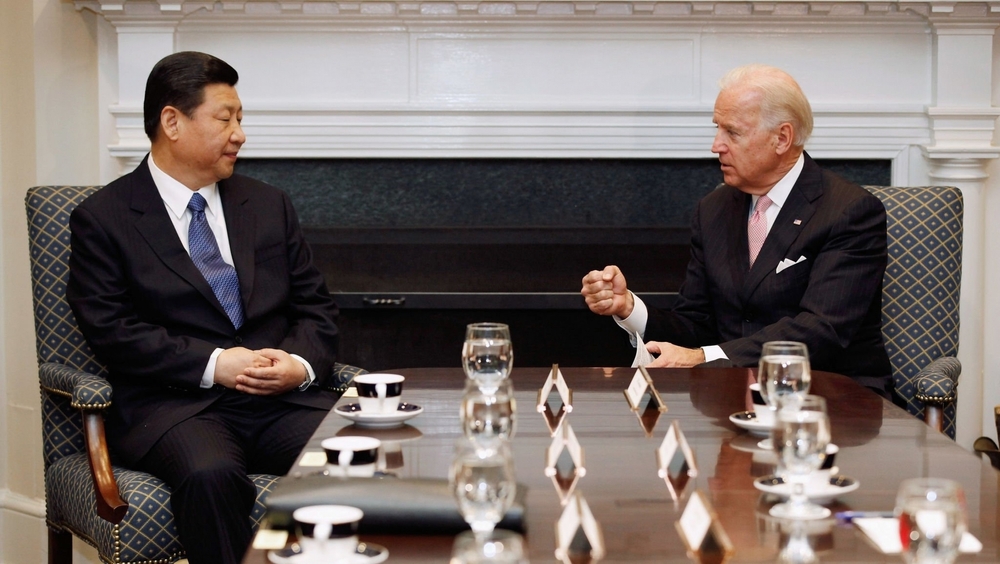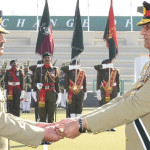In May 2014, the Chinese Communist Party (CCP) launched what it referred to as the Strike Hard Campaign Against Violent Terrorism. The stated aim of the military and political operation was to eradicate the so-called “ideological virus” of Islamist terrorism from Uyghur communities in East Turkestan.
This campaign was legitimised as a response to a series of violent incidents which the CCP claimed was the work of radicalised Uyghurs, including a bloody knife-wielding killing spree at Kunming railway station, which left over thirty people dead and over a hundred injured, as well as two suicide attacks in Ürümqi. [1]
9 years ago today, the People's Republic of China played a game that has been played by nation states against the Muslim world for decades.
— Islam21c (@Islam21c) May 23, 2023
Under the excuse of combating 'terrorism', they used military force to achieve their real objectives.
May Allah free the oppressed Muslims… pic.twitter.com/ZIfk46xt22
In rapid succession, the CCP implemented measures to contain the Uyghurs, beginning with compulsory registration in Xinjiang (East Turkestan), forcing many who were overseas or in China to return and then subsequently discover that they were not permitted to exit the province.
The CCP also launched a home visitation programme which entailed CCP officials living in Uyghur homes as uninvited guests and reporting back on so-called extremist behaviour, including praying five times a day, owning an Arabic Qur’ān, and visiting mosques on days other than Friday. [2]
Global contextualisation
The so-called Strike Hard offensive needs to be contextualised in a broader global backdrop in order to truly appreciate its significance.
While earlier securitising discourses by the CCP framed Uyghurs as separatists, in 2014, with the onset of the operation, the CCP began to more closely align its narratives with the “Global War on Terror” led by the US. [3]
In fact, when President Xi Jinping described the CCP’s measures as the “People’s War on Terror”, the timing was not coincidental. The US War on Terror also began a new iteration in mid-2014 in response to the announcement by al-Baghdadi — reportedly a former US War on Terror prisoner and victim of torture — that he had appointed himself as the Khalifa of the Muslims and was establishing a caliphate across Iraq and Syria, while threatening to depose the pro-US authoritarian governments in Jordan and other surrounding countries.
This period saw heightened global securitisation of Muslim migrants, even in Muslim majority countries, as seen for example in the treatment of Syrian refugees in Jordanian refugee camps. [4] The 2014 Strike Hard Campaign thus cannot be seen in isolation as a purely Sino-centric, Communist ideological project. Rather, the CCP’s discourses parallel those of the liberal US administration, which has led much of the global human rights drive criticising China’s treatment of the Uyghurs.
4.5 million killed since 9/11
What has been the outcome of the Global War on Terror?
Death and displacement of millions of Muslims, and not just that. According to research by the Watson Institute at Brown University’s Costs of War Project [5], more than 4.5 million people have been killed in the post 9/11 wars. At least 38 million people have been displaced from Afghanistan, Iraq, Pakistan, Somalia, the Philippines, Libya, and Syria — all of which are Muslim majority countries, except the Philippines, which has a sizeable Muslim minority population in the Moro region.
These figures show that the real objective of the global “War on Terror” project is not the protection of human lives, but rather state borders, which were drawn by colonial powers to protect their political and economic interests and to maintain their influence in supposedly former colonies.
The CCP and US often adopt combative postures with each other on the world stage but they share the interest of preserving and extending their global political dominance. While there are many ordinary peoples in these countries who selflessly struggle to create a socially just world order, the ruling regimes in these countries have as their utmost priority the preservation and extension of state power and control over every area of human life.
Muslim unity needed to protect the Ummah
While the pro-US and pro-China ruling regimes in Muslim countries that receive financial assistance and grants from these global powers continue to put their interests above those of ordinary Muslims who suffer the brunt of impact from the un-curtailed violence of the War on Terror, grassroots Muslim unity is essential to ensuring the future of the Ummah in these troubling times.
Source: Islam21c
Notes
[1] Joanna Smith Finley, 2019, ‘Securitization, Insecurity and Conflict in Contemporary Xinjiang: has PRC Counter-Terrorism Evolved into State Terrorism”?’, https://www.tandfonline.com/doi/epdf/10.1080/02634937.2019.1586348
[2] Darren Byler, 2018, ‘Violent Paternalism: On the Banality of Uyghur Unfreedom’, Asia Pacific Journal, 16(24):4
[3] Sean R. Roberts, 2019, ‘China’s War on the Uyghurs’, https://press.princeton.edu/books/hardcover/9780691202181/the-war-on-the-uyghurs
[4] Suraina Pasha, 2021, ‘Humanitarianism, Securitisation and Containment in Jordan’s Za’atari Refugee Camp’, https://onlinelibrary.wiley.com/doi/abs/10.1111/1468-4446.12827
[5] Watson Institute, Cost of War Project: https://watson.brown.edu/costsofwar/









